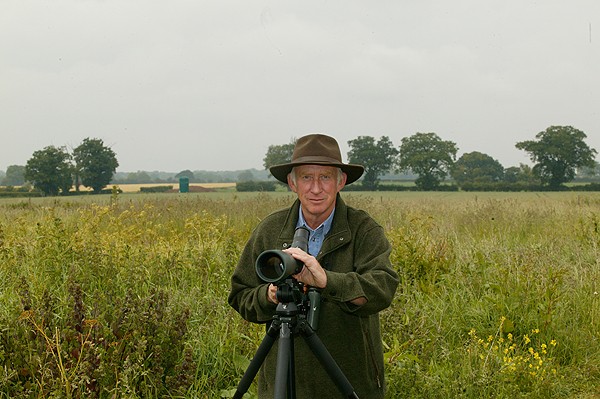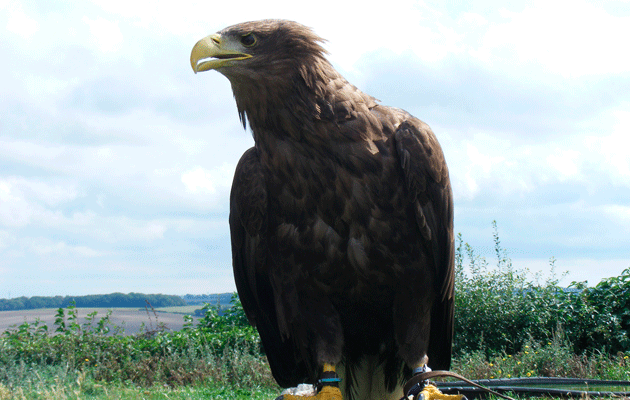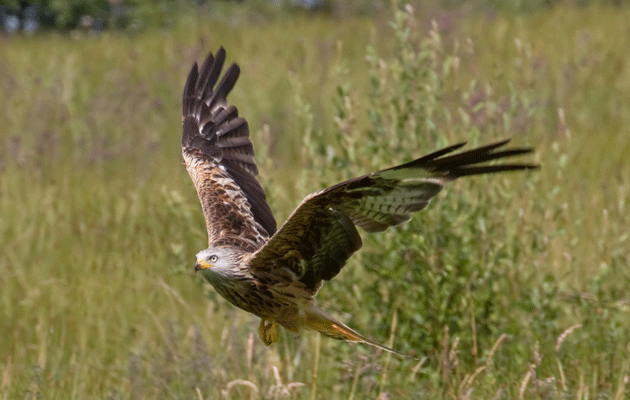Buzzard deserve our protection

My first view of a buzzard was a memorable one. The bird was dead, lying on its back with wings outstretched and a gin-trap attached to its legs. It had been dumped in the courtyard of the Cornish farm where I was staying and I viewed it from an upstairs window. I was eight years old at the time and the 1954 Protection of Birds Act, which had not only given the buzzard full protection, but also outlawed pole-trapping, was a mere four years old.
Over breakfast I discovered that the farmer, who was well aware that killing buzzards was illegal, had trapped the unfortunate bird. He claimed that buzzards took his lambs. Even to me, as a child, that seemed improbable, and when I came home from that holiday I read everything I could about these birds. It didnt take me long to discover that buzzards may be guilty of many things, but killing lambs definitely wasnt one of them.
We never had another family holiday in Cornwall. Instead my parents took us to the Continent, to Germany, France, Austria and Italy. I soon became familiar with live buzzards, for they have always been widespread and common throughout mainland Europe. However, I never saw a buzzard during my childhood in Kent. According to Dr James Harrisons The Birds of Kent, the buzzard became extinct as a breeding bird in Kent sometime between the end of the 18th and the beginning of the 19th century. After that the only records were of a few migrants in spring and autumn, most seen on the coast.
Buzzards eventually re-established themselves as Kentish breeding birds in the 1990s, with the first confirmed breeding on the North Downs in 1998. The nest was within my home parish and a remarkable number of birdwatchers came to see them, as only 10 years ago they were still a novelty in south-east England.
Not anymore, though. The buzzards remarkable spread and recolonisation of southern and eastern England during the past 10 years has been quite astonishing, prompting many unanswered questions. Was it really continued persecution that prevented them moving back east? And what was it that allowed such a rapid colonisation of long-lost ground?
According to the experts, buzzards may now be our most numerous bird of prey, outnumbering the once ubiquitous kestrel. With the resurgence in numbers has come the expected calls from some quarters claiming that its high time that they were controlled. I cannot be the only one to have had people tell me that they saw a dozen buzzards walking round a ploughed field or watched a flock of 18 thermalling in the sky. Its too many. Somethings got to be done about them! is a familiar cry.
Why? Yes, they are predators and the list of live prey they will take is a long one, ranging from earthworms to young rabbits, not forgetting a wide variety of birds which includes everything from partridge chicks to pheasant poults. The recent celebrated case of one catching a grey phalarope was widely reported in the press, but if you know anything about buzzards that was hardly surprising. A grey phalarope is a very small bird and by wintering on a Cornish marsh rather than far out in the Atlantic Ocean it was exhibiting aberrant behaviour, making it highly vulnerable to predation. If the buzzard hadnt got it, something else would have done.
Buzzards are both impressive birds and a natural part of our countryside and calls from the gamekeeping lobby to seek to control their numbers are certain to be extremely bad for the image of shooting. Look at the question from the general publics point of view. Why do we want to kill buzzards? Because we fear that they might kill our partridges and pheasants. What do we want to do with those partridges and pheasants? Why, kill them, of course. As raptors go, buzzards are both ineffective and relatively inoffensive. If you dont believe me, ask yourself why no self-respecting falconer is ever seen with a buzzard on his wrist. The impact they have on game interests is low. Numerous West Country shoots have managed to live with high densities of nesting buzzards for years without serious problems.
Enjoy buzzards for what they are: impressive, handsome birds whose presence is to be enjoyed. For most of my life Ive been denied the pleasure of watching them thermalling high in a summer sky, their plaintive mewing revealing their presence. The fact that they now breed in every English county should be a cause for celebration, not for calls for a change in legislation.80








